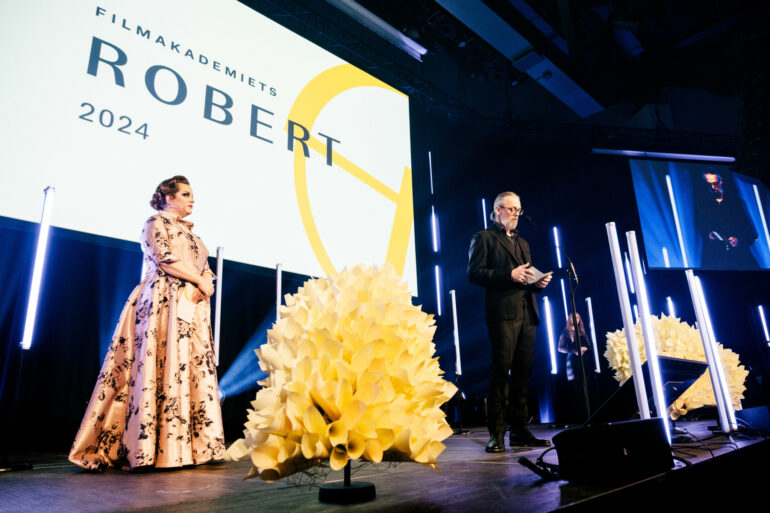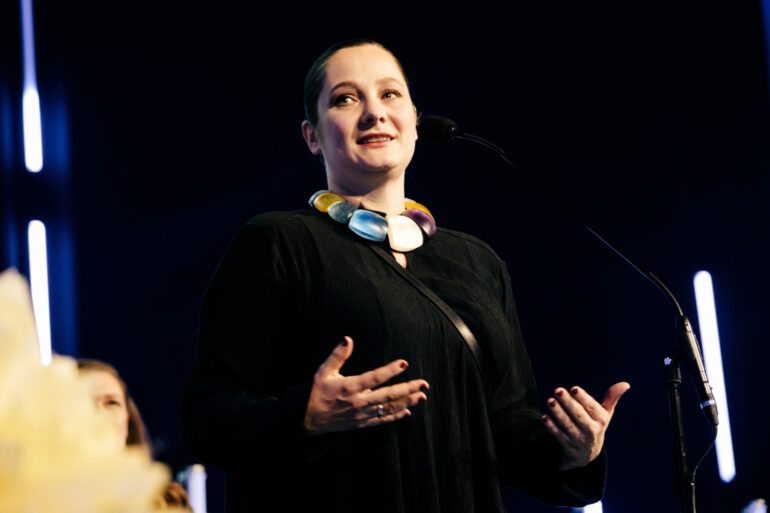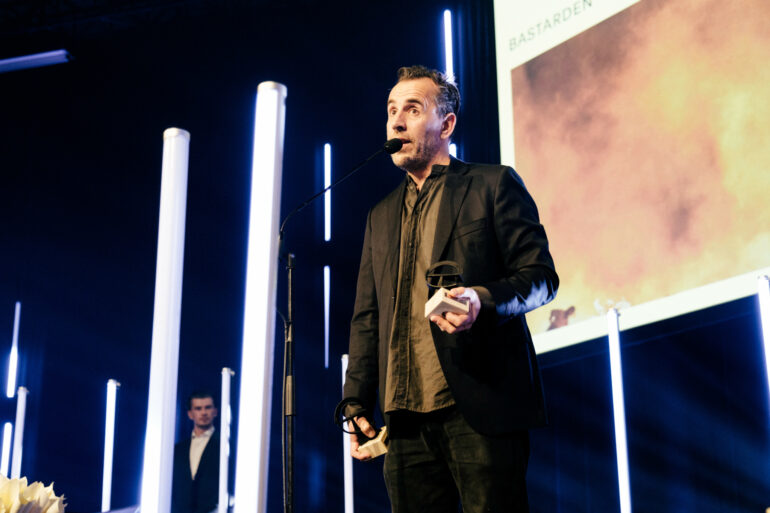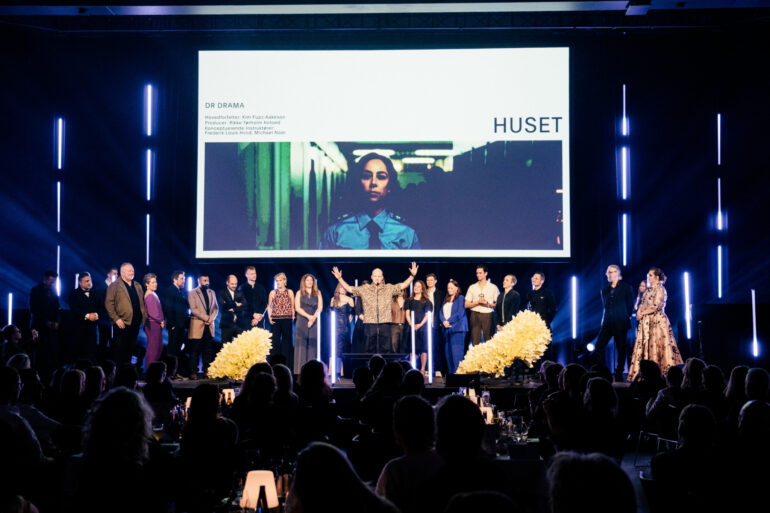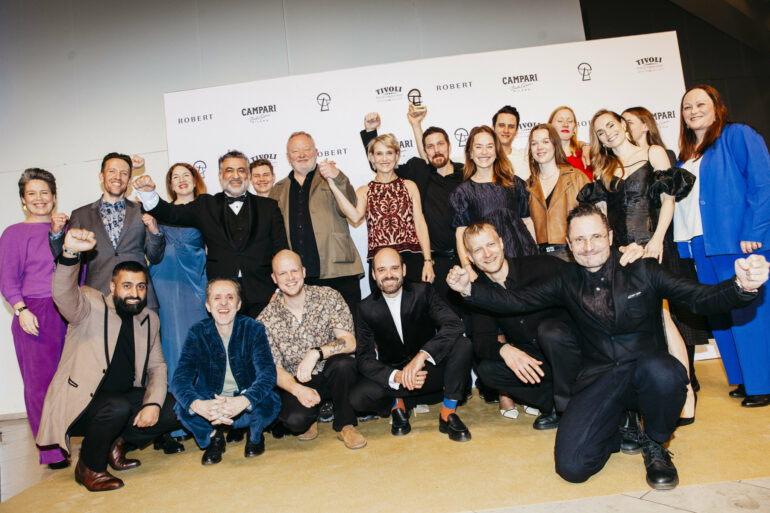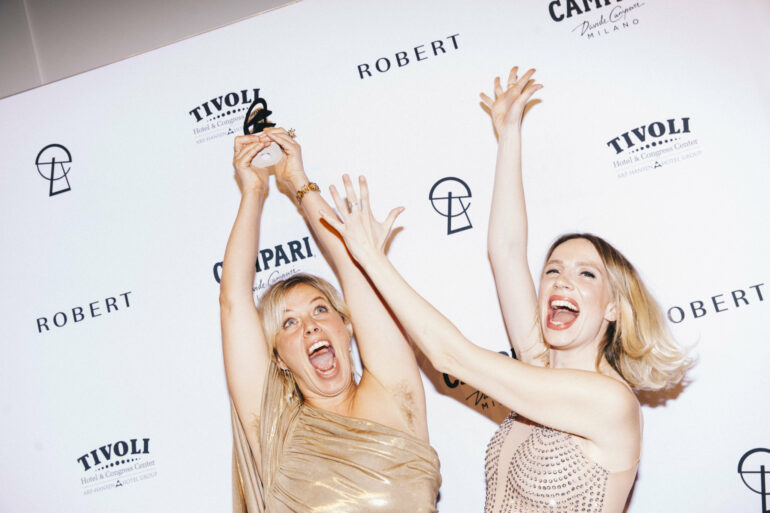Written by: Per Juul Carlsen
07.02.24
A few titles ran away with the main prizes at the 40th edition of the Danish Robert Awards. Jacob Neiiendam talks about creating the right award show for the Danish film business.
Nikolaj Arcel’s film The Promised Land (Bastarden), Lea Glob’s documentary Apolonia, Apolonia, and the DR series Prisoner (Huset) all landed the main prizes as Best Film, Best Documentary and Best Series, as well as a number of other prizes. In total, The Promised Land took nine statuettes, Prisoner took four, and Apolonia, Apolonia received five in total - among them Lea Glob got a Robert as Best Director, which is unusual for a director of documentaries. The three titles are supported by Nordisk Film & TV Fond and internationally awarded.
To all the winners: CLICK HERE (Danish).
With the Robert Award celebration turning 40 years, it is time to shed some light on the development of the Award show, hosted by an academy that today has over ten times more members than in 2011, when Jacob Neiiendam joined its board:
How has the Robert Award Show changed since you joined as Chairman of the Board at the Danish Film Academy?
When I joined the board in 2011, there were a couple of hundred members of the Academy. That didn’t feel right considering the size of our industry. There had to be more potential members than just the few per cent willing and able to pay the membership fee. Luckily the board agreed on this, so we scrapped the membership fee and focused on finding that financing elsewhere. Since then, the way to becoming a member has been connected to your active role in the industry, your profession, nothing else. And the membership has just grown and grown since then. Today we have passed 2,900 members. With that kind of membership we get more engagement, and the members help create attention for the show and the award. We’ve succeeded in gathering the industry around the show. With the increased membership, we were able to do something that hadn't been possible since the start of the Academy; to let the individual groups nominate within their own category - editors nominate editors and costume nominate costume etc.. That gave a more qualified diversity in the nominations and awards.
What’s important for the show you want to create?
To spotlight the various professions; the directors, the cinematographers, set designers and so on. We want this to be a forum for networking. It’s an award show, of course, but it’s just as important as a place where you network. Most of those attending won’t go home with an award, so there has to be more to it. A place where you meet not just those of your own profession. The livestreaming is for the fans or nerds, and not because we believe the show is spectacular entertainment. It has to be a good show to be a part of. And if it’s entertaining to watch, that’s great, but it’s not our main focus. No award show is really good television, in my opinion.
Her Majesty Queen Margrethe won an award for her costumes in Ehrengard: The Art of Seduction, which created a lot of media attention. Do you aim to bring other businesses or professions into the film world during the Robert Award Show?
No. Not at all, in fact. It’s important for us to mirror what’s going on in the film business, not to bring in something from the outside.
Would you go for a big Oscar-like show if you had the money?
There are different opinions about this. There are still some who see award shows as good television. I’ve been a part of and have seen enough award shows both live and on screen to say that I do not believe in that. Of course, it’s important that the winners are well prepared when they make a speech, but to present a line of awards on stage will never be really entertaining. The Oscars isn’t good TV either, but it has a star power that makes it fascinating. When you’re in the room, you feel like you’re just an extra. It’s not a show for the audience in the room, only for the camera. That’s a problem with many award shows. The success of an award show like Robert is not about the show itself, but what it does for the industry, which has to understand and be engaged in what we’re doing. That’s the success criteria.
The audience at this year’s award show noticed a lot of passionate speeches addressing important issues like climate and democracy. Is that something you’ve encouraged?
No. That’s not something we can arrange. But we can give people the opportunity to make a long and passionate speech.
How do you create a good forum for networking?
There has to be a looseness. It must be possible to walk from table to table during the show, and there has to be a long get-together after the show. It’s quite simple, in fact. It’s important that you do not feel stuck in your chair.
